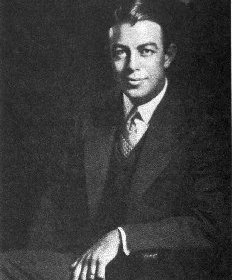Related Research Articles

Benjamin Lee Whorf was an American linguist and fire prevention engineer best known for proposing the Sapir–Whorf hypothesis. He believed that the structures of different languages shape how their speakers perceive and conceptualize the world. Whorf saw this idea, named after him and his mentor Edward Sapir, as having implications similar to those of Einstein's principle of physical relativity. However, the concept originated from 19th-century philosophy and thinkers like Wilhelm von Humboldt and Wilhelm Wundt.
The idea of linguistic relativity, also known as the Sapir–Whorf hypothesis, the Whorf hypothesis, or Whorfianism, is a principle suggesting that the structure of a language influences its speakers' worldview or cognition, and thus individuals' languages determine or shape their perceptions of the world.
In linguistics and related fields, pragmatics is the study of how context contributes to meaning. The field of study evaluates how human language is utilized in social interactions, as well as the relationship between the interpreter and the interpreted. Linguists who specialize in pragmatics are called pragmaticians. The field has been represented since 1986 by the International Pragmatics Association (IPrA).
Robert D. Van Valin Jr. is an American linguist and the principal researcher behind the development of Role and Reference Grammar, a functional theory of grammar encompassing syntax, semantics, and discourse pragmatics. His 1997 book Syntax: structure, meaning and function is an attempt to provide a model for syntactic analysis which is just as relevant for languages like Dyirbal and Lakhota as it is for more commonly studied Indo-European languages.
Cognitive science is the scientific study either of mind or of intelligence . Practically every formal introduction to cognitive science stresses that it is a highly interdisciplinary research area in which psychology, neuroscience, linguistics, philosophy, computer science, anthropology, and biology are its principal specialized or applied branches. Therefore, we may distinguish cognitive studies of either human or animal brains, the mind and the brain.
A linguistic universal is a pattern that occurs systematically across natural languages, potentially true for all of them. For example, All languages have nouns and verbs, or If a language is spoken, it has consonants and vowels. Research in this area of linguistics is closely tied to the study of linguistic typology, and intends to reveal generalizations across languages, likely tied to cognition, perception, or other abilities of the mind. The field originates from discussions influenced by Noam Chomsky's proposal of a Universal Grammar, but was largely pioneered by the linguist Joseph Greenberg, who derived a set of forty-five basic universals, mostly dealing with syntax, from a study of some thirty languages.
Philip Lieberman was a cognitive scientist at Brown University, Providence, Rhode Island, United States. Originally trained in phonetics, he wrote a dissertation on intonation. His career focused on topics in the evolution of language, and particularly the relationship between the evolution of the vocal tract, the human brain, and the evolution of speech, cognition and language.
Fictive motion is the metaphorical motion of an object or abstraction through space. Fictive motion has become a subject of study in psycholinguistics and cognitive linguistics. In fictive motion sentences, a motion verb applies to a subject that is not literally capable of movement in the physical world, as in the sentence, "The fence runs along the perimeter of the house." Fictive motion is so called because it is attributed to material states, objects, or abstract concepts, that cannot (sensibly) be said to move themselves through physical space. Fictive motion sentences are pervasive in English and other languages.
Cognitive anthropology is an approach within cultural anthropology and biological anthropology in which scholars seek to explain patterns of shared knowledge, cultural innovation, and transmission over time and space using the methods and theories of the cognitive sciences often through close collaboration with historians, ethnographers, archaeologists, linguists, musicologists, and other specialists engaged in the description and interpretation of cultural forms. Cognitive anthropology is concerned with what people from different groups know and how that implicit knowledge, in the sense of what they think subconsciously, changes the way people perceive and relate to the world around them.

The Max Planck Institute for Psycholinguistics is a research institute situated on the campus of Radboud University Nijmegen located in Nijmegen, Gelderland, the Netherlands. The institute was founded in 1980 by Pim Levelt, and is unique for being entirely dedicated to psycholinguistics, and is also one of the few institutes of the Max Planck Society to be located outside Germany. The Nijmegen-based institute currently occupies 2nd position in the Ranking Web of World Research Centers among all Max Planck institutes. It currently employs about 235 people.
Melissa Bowerman was a leading researcher in the area of language acquisition. From 1982 to 2007, she was a senior research fellow at the Max Planck Institute for Psycholinguistics.
Interactional sociolinguistics is a subdiscipline of linguistics that uses discourse analysis to study how language users create meaning via social interaction. It is one of the ways in which linguists look at the intersections of human language and human society; other subfields that take this perspective are language planning, minority language studies, quantitative sociolinguistics, and sociohistorical linguistics, among others. Interactional sociolinguistics is a theoretical and methodological framework within the discipline of linguistic anthropology, which combines the methodology of linguistics with the cultural consideration of anthropology in order to understand how the use of language informs social and cultural interaction. Interactional sociolinguistics was founded by linguistic anthropologist John J. Gumperz. Topics that might benefit from an Interactional sociolinguistic analysis include: cross-cultural miscommunication, politeness, and framing.
John A. Lucy is an American linguist and psychologist. His work primarily concerns the relations between language and cognition, especially the hypothesis of linguistic relativity. He is the William Benton Professor in the Department of Comparative Human Development and the Department of Psychology at the University of Chicago. Lucy has worked extensively with the Yucatec Maya language, specializing in the system of noun classification.

The Hopi time controversy is the academic debate about how the Hopi language grammaticizes the concept of time, and about whether the differences between the ways the English and Hopi languages describe time are an example of linguistic relativity or not. In popular discourse the debate is often framed as a question about whether the Hopi have a concept of time.
Penelope Brown is an American anthropological linguist who has studied a number of aspects of cross-linguistic, sociolinguistic, and cross-cultural studies of language and cognition.

Felix Ameka (1957) is a linguist working on the intersection of grammar, meaning and culture. His empirical specialisation is on West-African languages. He is currently professor of Ethnolinguistic Diversity and Vitality at Leiden University and teaches in the departments of Linguistics, African Languages and cultures, and African Studies. In recognition of his pioneering work on cross-cultural semantics and his long-standing research ties with Australian universities, he was elected as a Corresponding Fellow to the Australian Academy of Humanities in 2019.
Asifa Majid is a psychologist, linguist and cognitive scientist who is professor of language, communication and cultural cognition at the University of Oxford, UK. She is the 2024 recipient of the Jeffrey L. Elman Prize for Scientific Achievement and Community Building, awarded by the Cognitive Science Society. In 2015 she won the Ammodo KNAW Award for fundamental research.
Soonja Choi (Korean: 최순자) is an Austria-based linguist from South Korea. She specializes in language acquisition, semantics, and the linguistics of Korean.

Mark Dingemanse is a Dutch linguist and an Africanist. He is an associate professor in Language and Communication at the Centre for Language Studies of Radboud University Nijmegen. Dingemanse obtained a MA degree in African Languages and Cultures at Leiden University in 2006, and a PhD degree in arts in 2011 at Radboud University Nijmegen. He is also a Senior Investigator in the Multimodal Language and Cognition research group at the Nijmegen Max Planck Institute for Psycholinguistics. Dingemanse performed linguistic fieldwork in eastern Ghana and did comparative research on various languages. He is principal investigator of the research programme Elementary Particles of Conversation, on the small words in everyday language. The Royal Netherlands Academy of Arts and Sciences awarded Dingemans a Heineken Young Scientists Award in 2020.
The International Pragmatics Association (IPrA) is a scientific organization that focuses on the study of language use. It was established as a non-profit organization in 1986.
References
- 1 2 LEVINSON, Prof. Stephen Curtis, Who's Who 2014, A & C Black, 2014; online edn, Oxford University Press, 2014
- ↑ "History Timeline | Max Planck Institute". www.mpi.nl.
- ↑ "Faculty of Languages appoints two new honorary doctors - Uppsala University, Sweden".
- ↑ "International Pragmatics Association (IPrA): Organization".
- ↑ Dingemanse M, Roberts SG, Baranova J, Blythe J, Drew P, Floyd S; et al. (2015). "Universal Principles in the Repair of Communication Problems". PLOS ONE. 10 (9): e0136100. Bibcode:2015PLoSO..1036100D. doi: 10.1371/journal.pone.0136100 . PMC 4573759 . PMID 26375483.
{{cite journal}}: CS1 maint: multiple names: authors list (link) - ↑ Kendrick KH, Brown P, Dingemanse M, Floyd S, Gipper S, Hayano K, Hoey E, Hoymann G, Manrique E, Rossi G, Levinson SC (2020). "Sequence organization: A universal infrastructure for social action". Journal of Pragmatics. 168: 119–138. doi:10.1016/j.pragma.2020.06.009. hdl: 21.11116/0000-0006-D007-7 . S2CID 224867809.
{{cite journal}}: CS1 maint: multiple names: authors list (link)